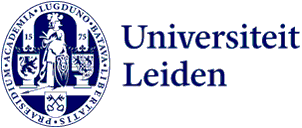
‘Children’s healthcare rights deserve more attention’
‘Children’s rights are somewhat of a poor relation’, says Professor of Law and Health Mirjam Sombroek-van Doorm. In her inaugural lecture, she will emphasise how more attention needs to be paid to children’s rights in current thinking on law and health. Especially when it comes to medical innovations.
Sombroek-van Doorm is passionate about the position of children in health law and the responsibilities this entails. Her doctorate was about professional confidentiality and child abuse. Now she is Professor of Law and Health, she remains committed to children’s legal rights in a medical and healthcare context.
‘Children’s rights are somewhat of a poor relation’, says Sombroek-van Doorm. ‘Doctors, legal experts and others too are often unaware that the Netherlands signed the Convention on the Rights of the Child in 1995.’ This states that children have the right to the highest attainable standard of health, to non-discrimination and to life, survival and development. And that they have the right to participate in measures or decisions that affect them. Children should be taken seriously because they are active rights holders.
It is often still thought better to withhold information from seriously ill children.
Children not properly informed
Out of good intentions, adults are often very protective of children. ‘Then children are excluded too often from participating in decisions that affect them. You also see that it is by no means certain that they will receive all the right information.’ For instance, it was not a given that decent information would be available for children about Covid vaccinations. And it is often still thought better to withhold information from seriously ill children. ‘But that is not in line with the Convention on the Rights of the Child. And research has shown that involving children is of tremendous value. For not only the child’s mental and physical health but also their trust in the treatment and practitioners.’
Greater focus on children’s rights
So how do we ensure that children’s rights receive more attention? It begins with educating students, says Sombroek-van Doorm. ‘I teach students on the master’s in European law at the French Paris 1 Panthéon-Sorbonne university and they tell me they have never heard of the Convention on the Rights of the Child. But NGOs, the government, legal experts and academics should also be aware of children’s rights in the medical and healthcare context. And they should take these rights into account when developing new legislation.’
Jurisprudence and innovations
And that brings us to the second message of her inaugural lecture: jurisprudence should keep more of a finger on the pulse of medical, technological and pharmacological innovations. ‘I see the innovations doctors and other researchers come up with and am hugely impressed. With innovations, we often immediately think of the medical, technological or pharmacological aspects, but we forget that it is also about thinking these innovations through properly. They cannot exist without law or ethics, for example. And yes, from a legal standpoint, it is really important to look at children’s rights.’
‘Children sometimes need one-time treatment to stay healthy. Invaluable you would think.’
The professor gives the example of the Cure4Life project, in which she and colleagues are mapping the legal and ethical aspects of stem cell gene therapy for children. ‘For me, it is only logical to make the connection with children’s rights here. Children have the right to life, survival and development. They sometimes need one-time treatment to stay healthy. Invaluable you would think. But it’s not that simple. What do we do as a society if such treatment is extremely expensive and is not covered by insurance? When deciding whether or not to provide such treatment, do we give due weight to children’s rights?’
Beyond the confines of law
Answering tough questions like these takes a lot of collaboration. And, says Sombroek-van Doorm, this means that legal scholars should venture outside the confines of law more often, get involved early on in medical and healthcare innovations and just start liking other disciplines. Not one to shy away from others, she is now involved in several interdisciplinary research programmes. When legal scholars are included in research on new treatments, we learn to understand that world. We can ask the right questions and help reduce the time it takes to bring medical innovations to patients, society and the world.’
Mirjam Sombroek-van Doorm will give her inaugural lecture on 26 April: De steen van Antoine de Saint-Exupéry - Bouwen aan de samenwerking tussen recht en gezondheid
Text: Dagmar Aarts
